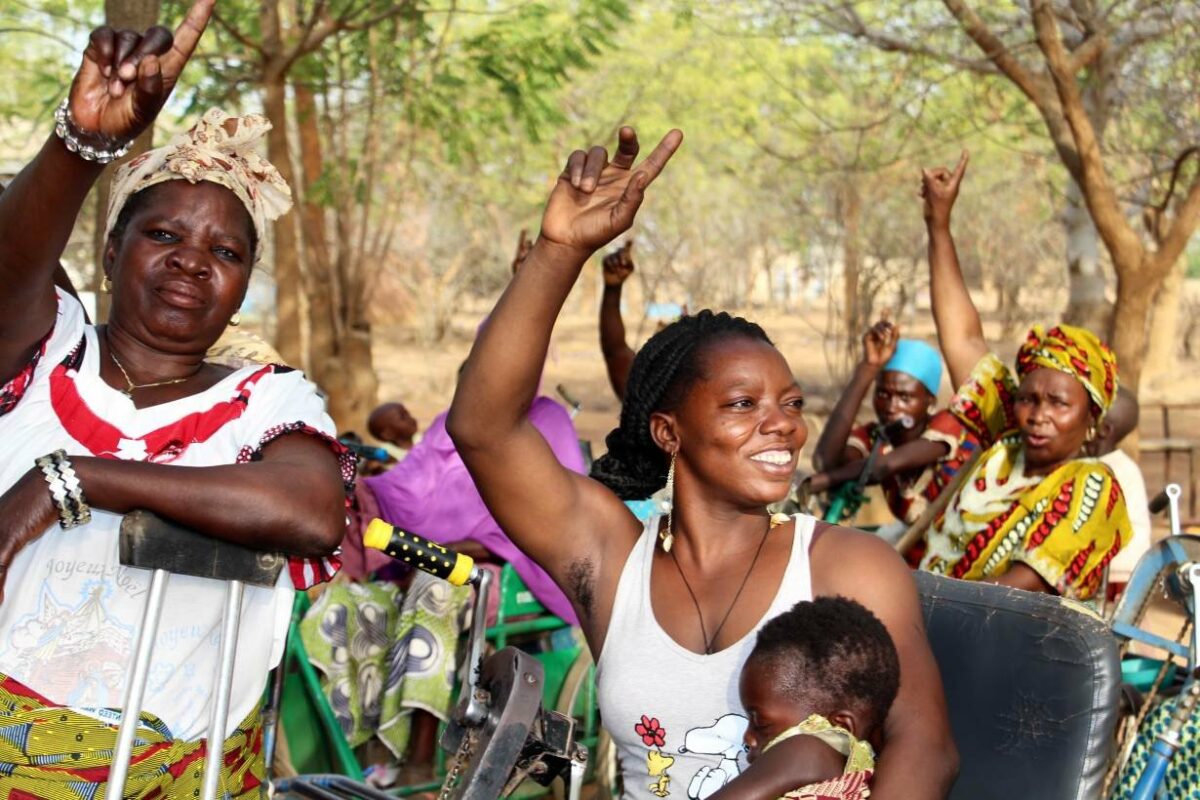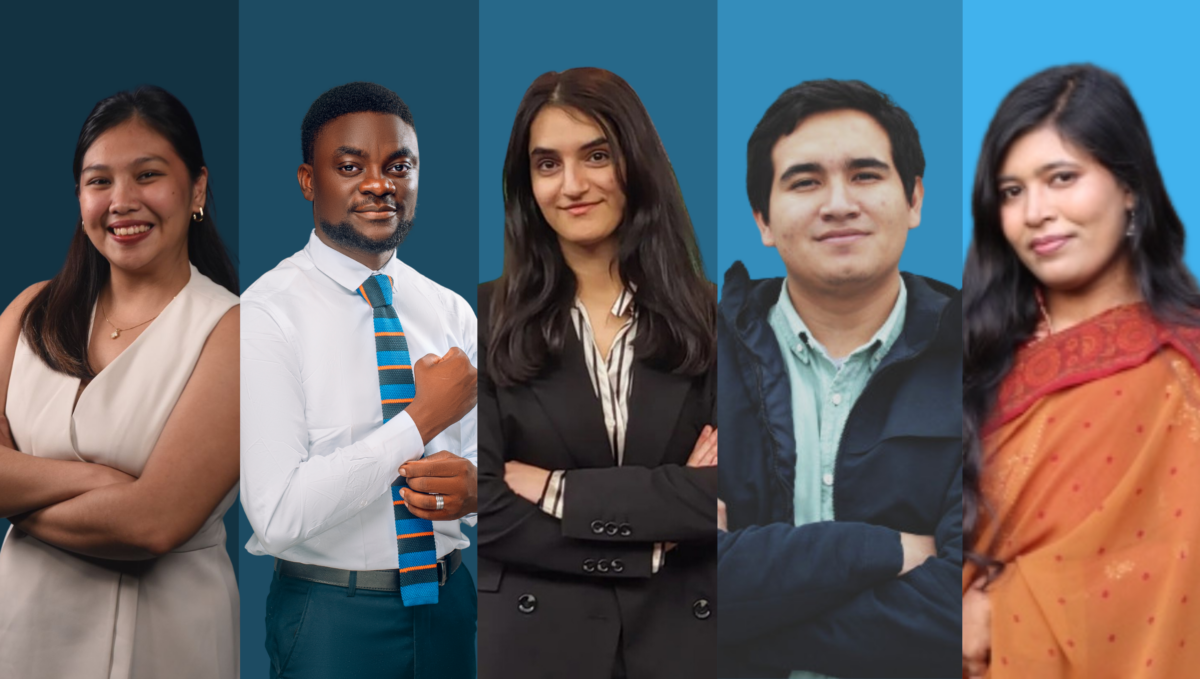Throughout the month of March, CEPPS will be sharing profiles of women leading the way for greater inclusion of the voices and priorities of women with disabilities. In collaboration with local civil society organization Care Society, CEPPS/IFES has been implementing the Power to Persuade Program in the Maldives, strengthening the capacity of women with disabilities to advocate for their priorities in Maldivian policy- and decision-making processes.
Aishath Amsoodha, a wife and mother from the Northern Atolls of the Maldives, attended the “Power to Persuade” training in Haa Dhaal Atoll because of her interest in empowering women and connecting with women across disabilities. Quite simply, she says, “I wanted to feel included.” Read about Aishath’s experience.

“I gained the courage to speak up and share my story…[and] realized that everyone would accept what I said and that I, too, have things of value to say.”
In your view, what are the biggest obstacles facing people with disabilities in the Maldives?
As a person with a physical disability, we are very much hidden from public view due to the many challenges to being out and about in public. So, it is easy to not factor us in or forget about us when making important decisions.
One of the most significant issues is the need for access to essential services. For instance, in the Maldives, the island council provides many critical public services. You have to go to the island council to pay your utility bills, to obtain a national identity card, meet with local government officials, or access other essential services. In smaller islands, like where I live, and where the population of people with disabilities is small, these centers are not accessible for persons with disabilities. This accessibility issue exists for wheelchair users like me and those with disabilities like blindness. And it is not just government services; the lack of accessibility extends to other services such as mosques, shops, parks, etc.
In smaller islands, it is considered a burden to make changes to facilitate the equal participation of persons with disabilities, as many people consider this group to be too small to cater to.
What do you think are priority issues for women with disabilities?
The experiences of women with disabilities are often very different from men with disabilities and so are the issues that are most significant to them.
Due to a lack of local employment opportunities, men often have to work away from their island. In most of the Maldives, women are the homemakers and caregivers. In these circumstances, lack of access to education, healthcare and other services impacts women with disabilities in a very different way and has directly impacted me and my family.
For instance, the health center on my island is not wheelchair accessible. This has been the case my entire life. But now that I have had a child, the distress of this exclusion is compounded. When my son develops a health issue, I cannot accompany him to the doctor’s room and explain his symptoms to the doctor or see him getting treated. I have to wait outside. Until two years ago, I couldn’t accompany my son to the doorway of his classroom and hand him his book bag like all other parents could because the walkway to the school classrooms was not accessible. Instead, he had to carry the very heavy book bag in himself. Similarly, until a few years ago, at Quran recitation competitions at the school I couldn’t sit with other parents to watch my son compete because the school hall was not accessible. I had to watch his performance from outside through a window. These are painful memories for our family. The situation has changed and I can now access the main hall and some other areas, but some areas in the school are still inaccessible to me. For instance, I am provided seating outside the classroom with my son during parent-teacher meetings. All other parents and students meet the teacher inside the classroom.
What I am saying is that the marginalization of women with disabilities excludes not just them, but their children and families as well.
Why did you attend the Power to Persuade (P2P) training?
I attended the “Power to Persuade” training because I wanted to feel included. The training was also about women’s empowerment, which I am very interested in. I had never attended a training like this before; we have very few opportunities like this on our island. I also had the desire to talk and share my feelings because only people who go through the challenges that I go through will understand how I feel. A person with blindness, for example, will not be able to understand what a person with another disability goes through, and vice versa. So, I wanted to learn about other people’s experiences and tell them my story and struggles.
What did you learn or take away from the P2P training?
 What I gained from the “Power to Persuade” training was the courage to speak up and share my story. Before the workshop, I wasn’t capable of it. I didn’t know that when I was given the opportunity to speak, I could easily address a group of people. And I didn’t realize that everyone would accept what I said and that I, too, have things of value to say.
What I gained from the “Power to Persuade” training was the courage to speak up and share my story. Before the workshop, I wasn’t capable of it. I didn’t know that when I was given the opportunity to speak, I could easily address a group of people. And I didn’t realize that everyone would accept what I said and that I, too, have things of value to say.
I discovered that we [as women with disabilities] have many rights afforded us by the constitution and that we can talk about our concerns without issue.
How will you use (or how have you used) what you learned during the training to advocate for women with disabilities in the Maldives?
After the “Power to Persuade” workshops, I am more outspoken and vocal about disability issues. I contacted my island council and the health center to discuss my concerns regarding access to their services. I also went to see newly constructed buildings on my island, such as the traveler’s shelter and the new engine room, to make sure they were disability accessible, which they were. I question these things more after the training.
I also joined other “Power to Persuade” participants from the Northern regions to meet with the city and atoll councils in Haa Dhaal Atoll to advocate for better access to health services, including the sea ambulance and better access to transport by installing ramps and wheelchair lifts at ferry terminals.
What are your hopes for women in the Maldives?
I want women to stand at the forefront. I want more women as cabinet ministers and more women employed in important decision-making positions. I especially want women with disabilities to become leaders and help other women with disabilities by inspiring them and removing negative assumptions that society holds about the capabilities of persons with disabilities. My main message is don’t exclude us.


